Fiji has always held a special place in my heart, and I cannot think of a better place to start my year.
I have been lucky enough to experience the joy, warmth, and vibrancy that epitomise Fiji throughout my life. Thanks to my parent’s work, I have been able to visit Fiji on a frequent basis throughout my childhood and into my adult life. Fiji was where I was first introduced to the water, first learnt to scuba dive and the country has played an important role in developing my curiosity for the ocean.
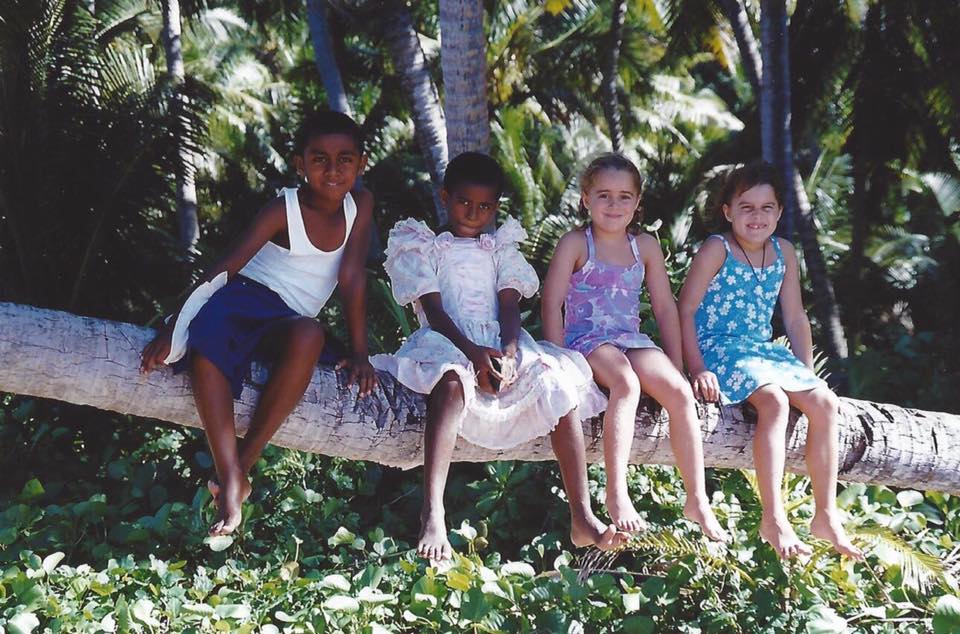
So, when Australasian Vice President, Jayne Jenkins, asked if I wanted to head to Fiji and spend time with Beqa Adventure Divers learning about their shark conservation program, I jumped at the opportunity.

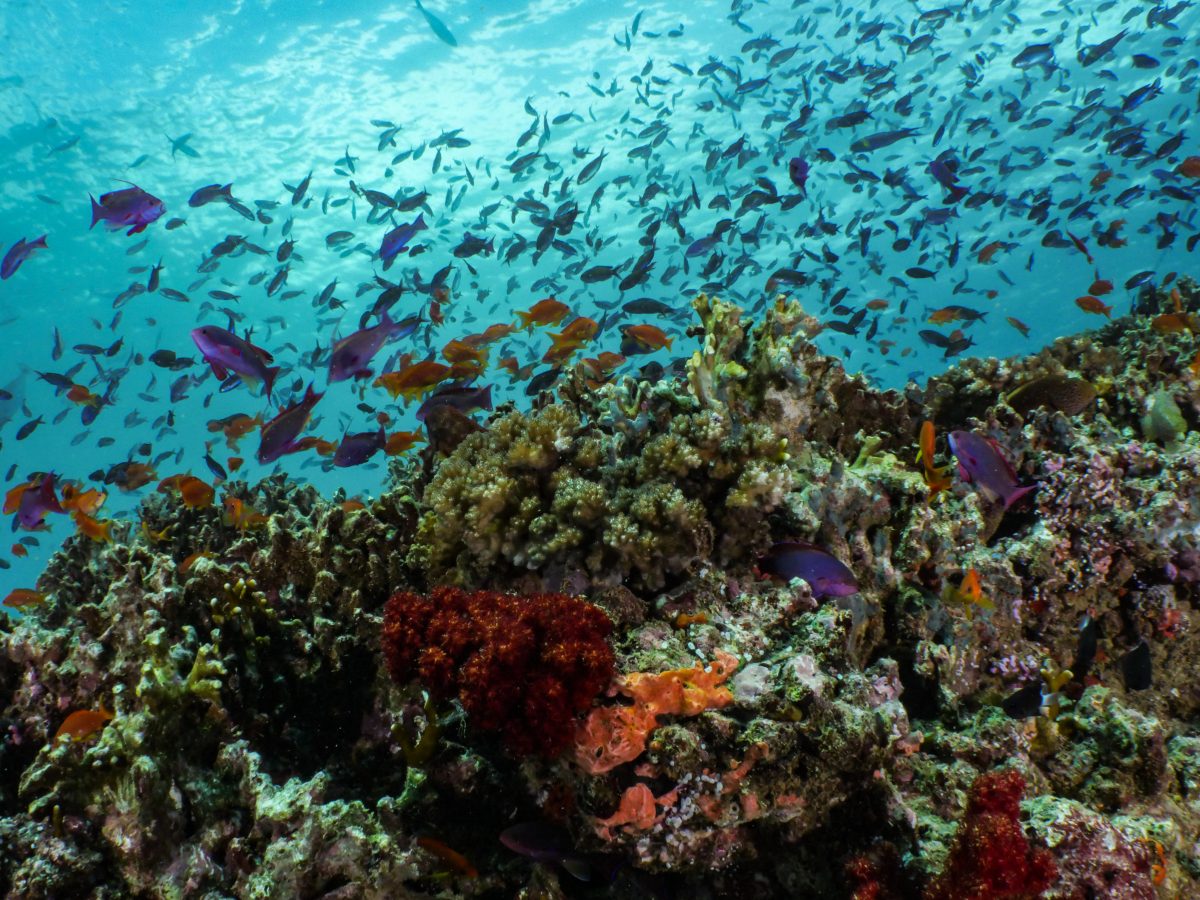
The Legend of Dakuwaqa
Dakuwaqa can go by many names, however, in Fijian mythology, the legend of a Vu (god) who takes the form of a shark, runs deep. Dakuwaqa (pronounced Dakuwanga) also known as Gone Mai Rai, or Masilaca is a Shark God, the guardian of the reef and protector of the people.
Dakuwaqa is a fierce protector, guarding seafarers against dangerous seas and guiding those in peril to safety. Dakuwaqa is still an important part of Fijian culture today and represents centuries of respect, understanding, and harmony between the Fijian people and the marine environment.
Fijian Sharks
Unfortunately, Sharks are in trouble. Thanks to over-fishing, by-catch, entanglement, demand for shark fins and a serious case of misunderstood personality, shark populations around the world are in decline. The latest research suggests over 100 million sharks are caught annually resulting in 43% of pelagic sharks and 25% of coastal sharks and rays threatened with extinction (the source of this data can be found through this link).
And that’s just the species we have data for.
Shark conservation and awareness have been gaining traction over the last decade, but it still has a long way to go.
Beqa Adventure Divers (BAD) are at the frontline championing this cause.
BAD have been running shark dive experiences for scuba divers for over 16 years. The dive is based in the picturesque Beqa Lagoon, about a three-hour drive from Fiji’s main airport in Nadi.
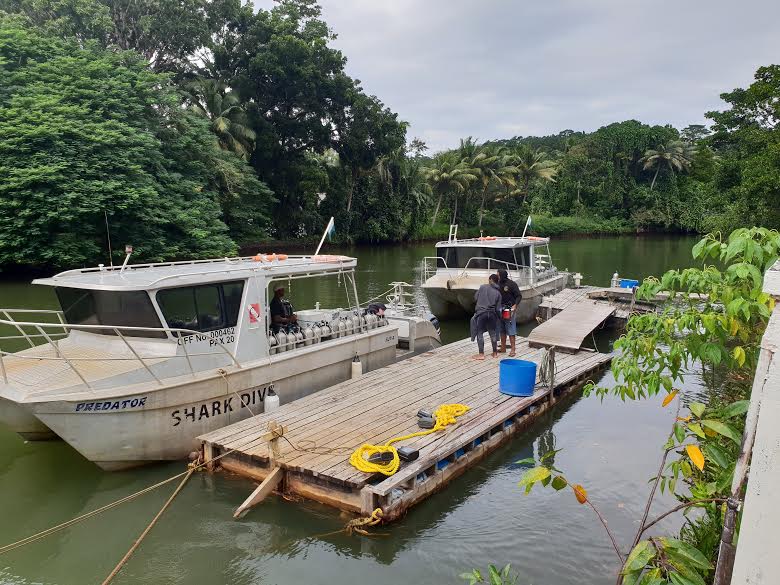

The dive is insane. Picture yourself at 30 m, in the midst of upwards of 35 very large bull sharks who are being hand fed by a team of extremely well-trained dive masters. When I say these sharks come close, I mean CLOSE. I got slapped in the face by a tail. This dive gives guests a front row seat to the largest aggregation of Bull Sharks in the world.
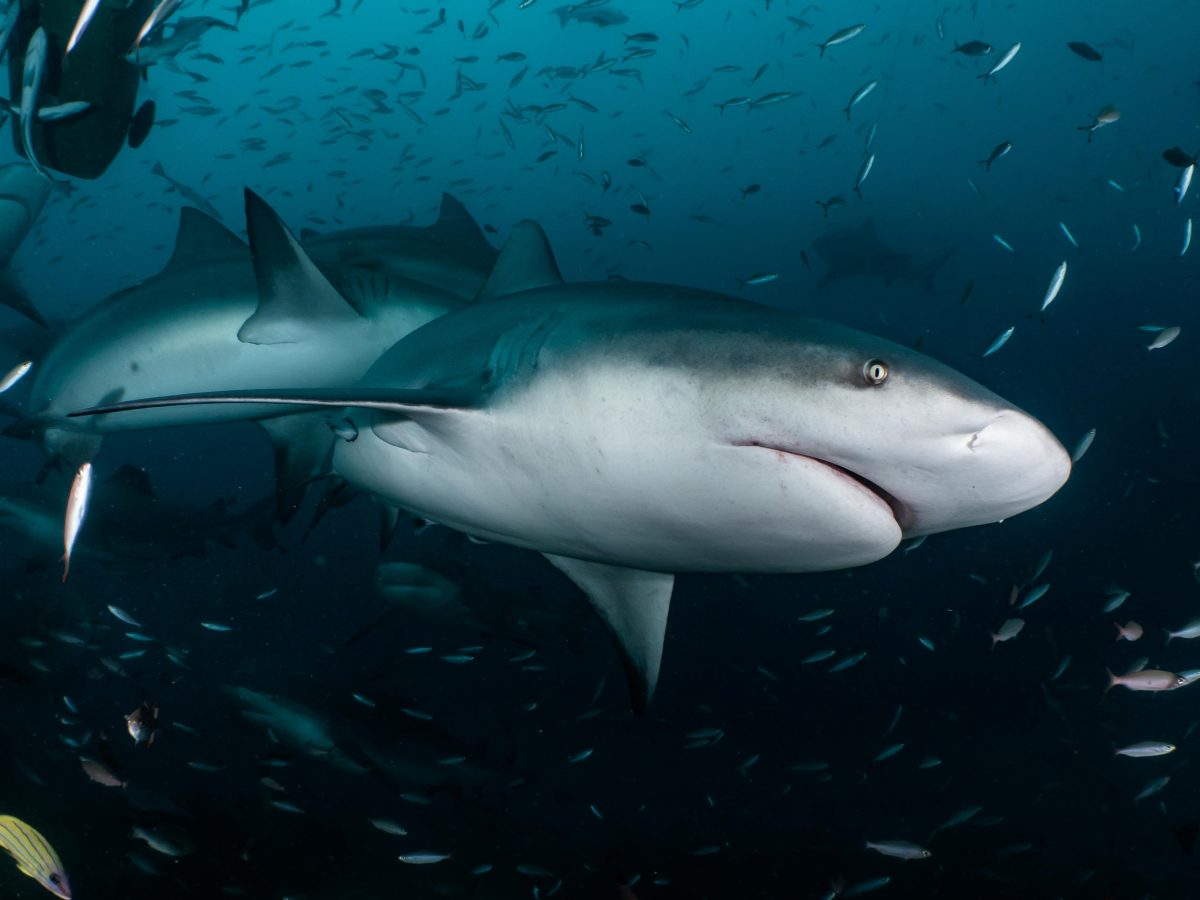
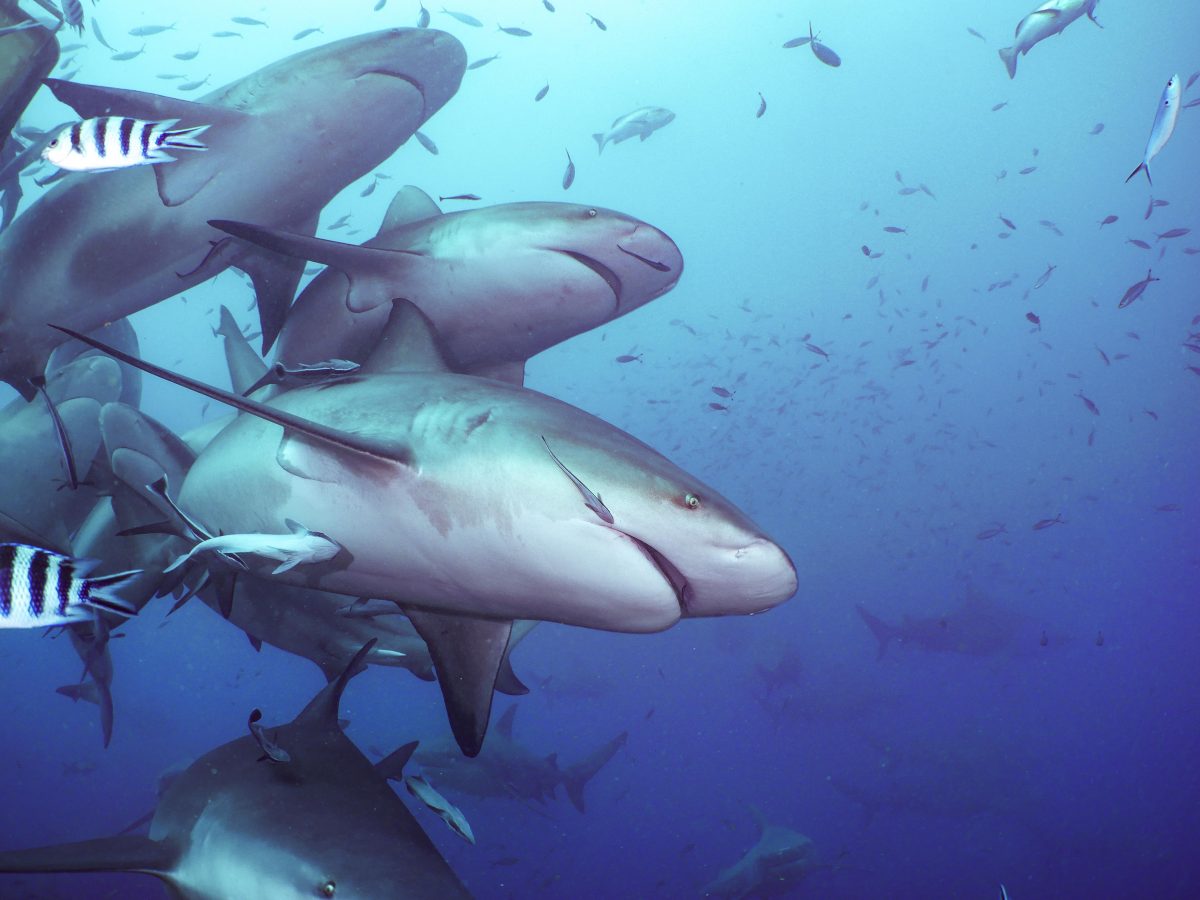
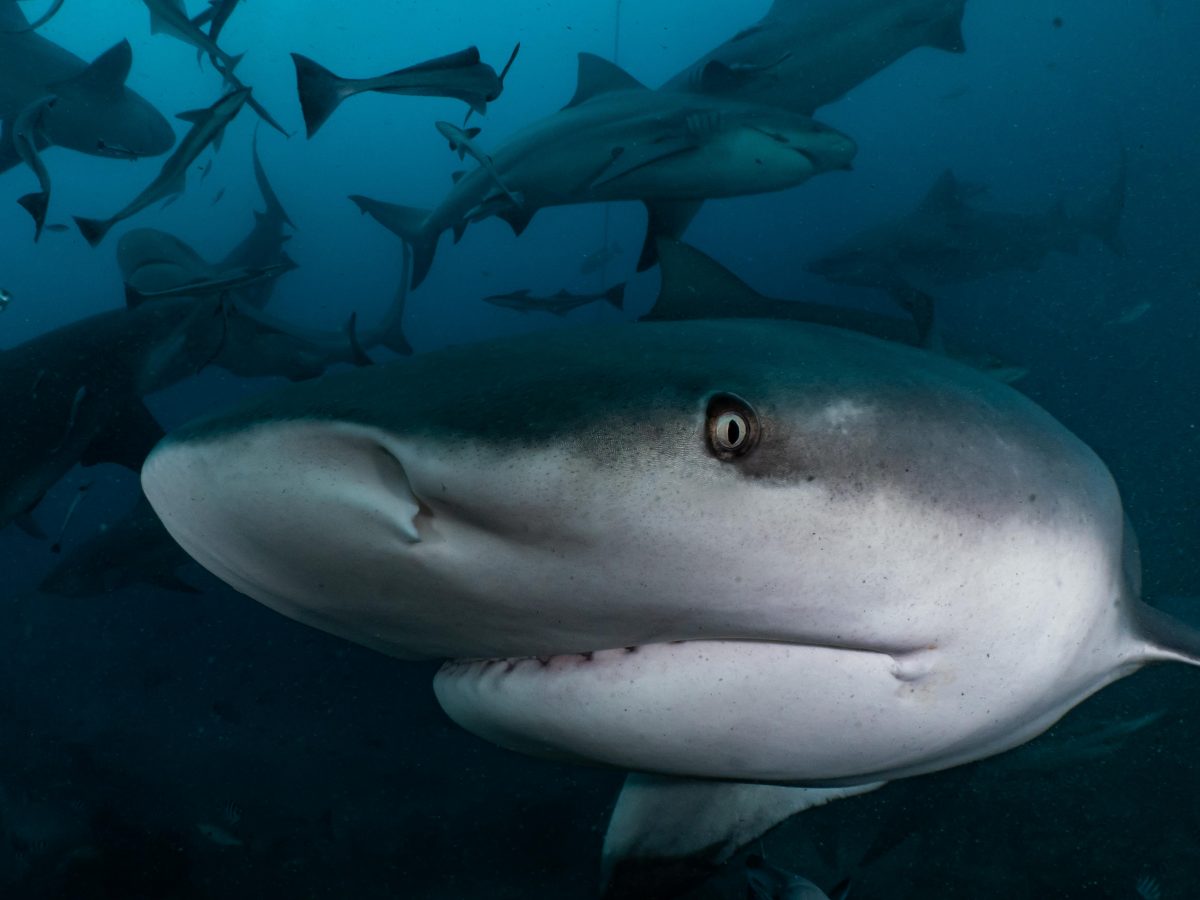
From 30 m you ascend up to the wall to take a seat at 10 m. The dive masters then feed an array of reef sharks including grey reefs, white-tips and black-tips.
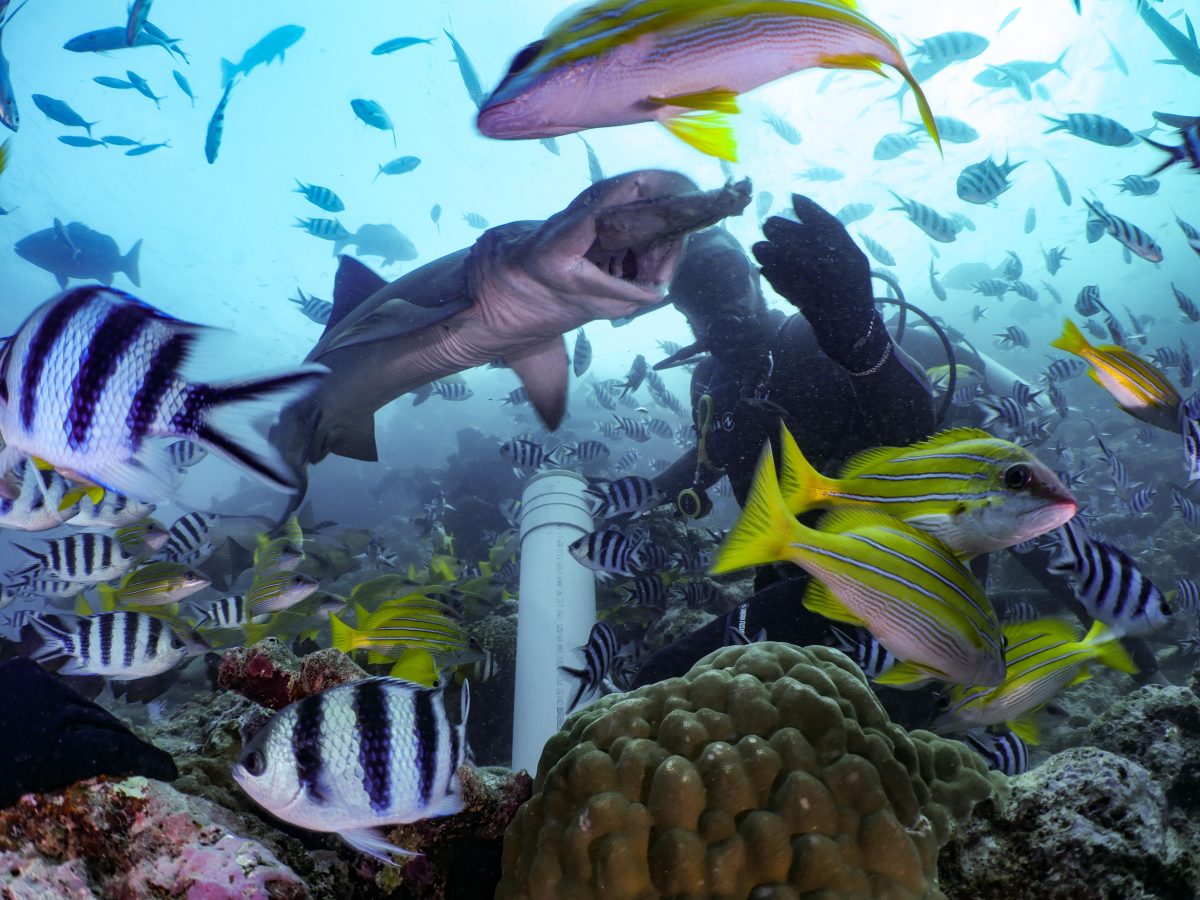
Through their shark dive, BAD aim to educate guests about the threats and pressures sharks are facing in the modern world. BAD have implemented the Shark Reef Marine Reserve surrounding the shark dive site, the first marine reserve dedicated to researching and preserving the local shark population.
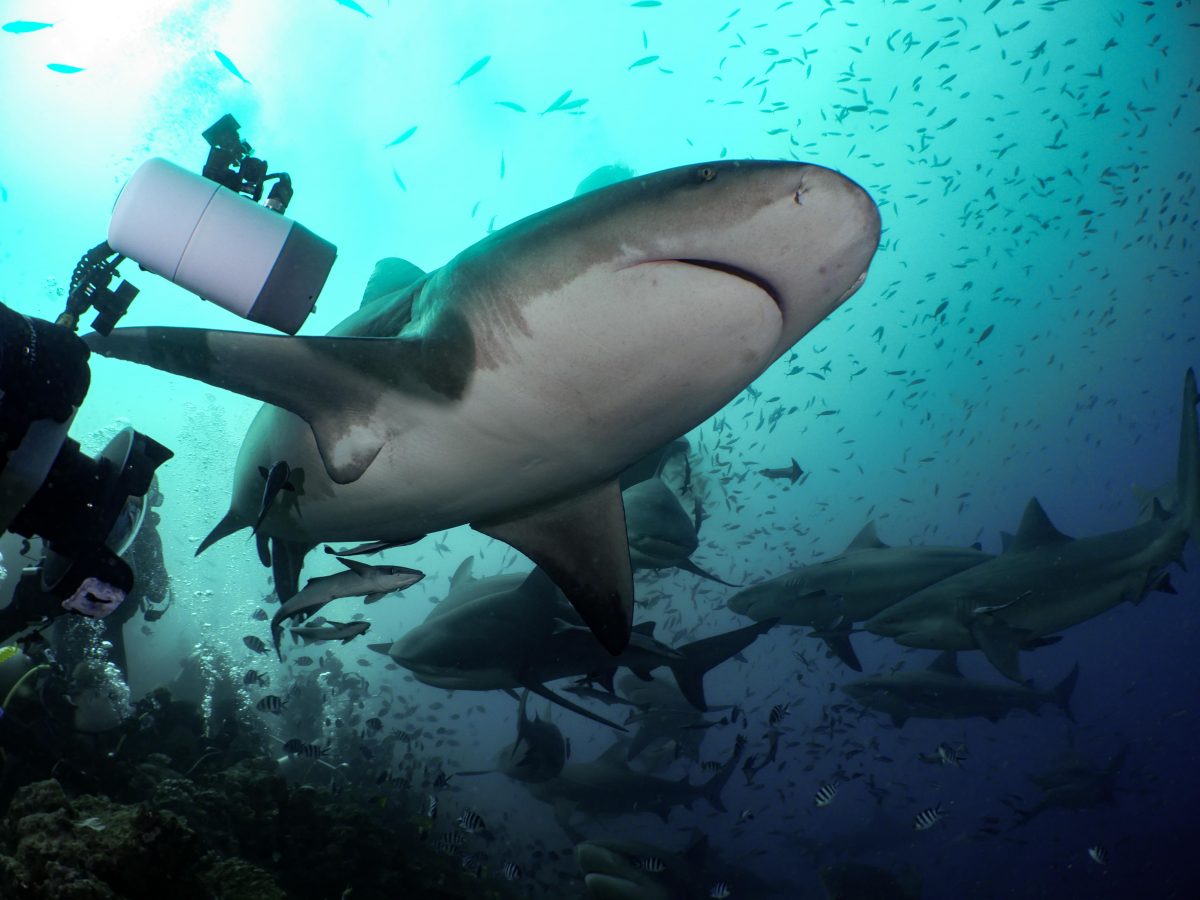
Since its implementation, the program has gone global. Research efforts now involve collaboration with universities all over the world. Their main areas of research include population dynamics, shark life cycles and the effects of human interactions on shark behavior. For more information, please take the time to check out their website.
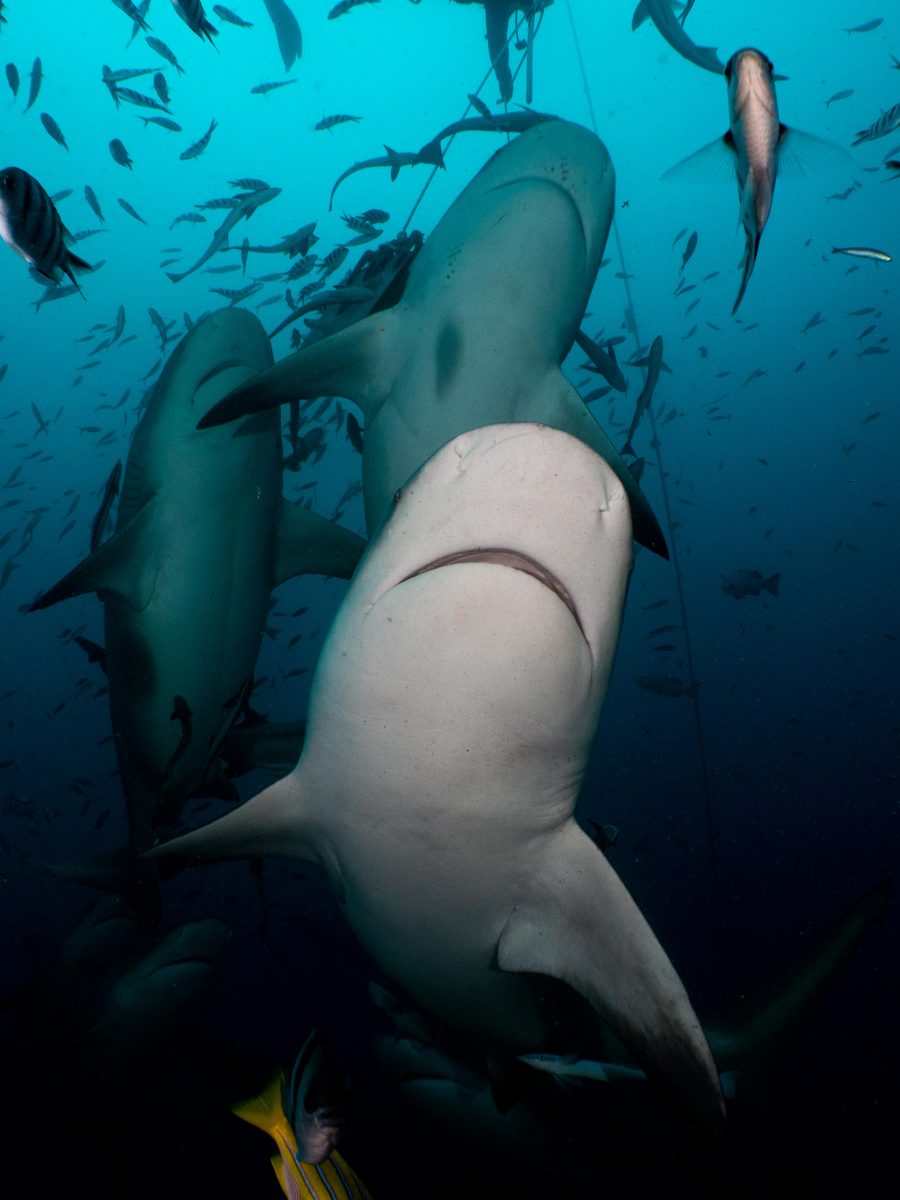
Another great initiative of BAD is the introduction of the My Fiji Shark Program. My Fiji Shark is a shark adoption program where you can adopt a shark, complete with a name and description of its personality. The proceeds of the adoption program are used to support existing shark conservation measures; fund research; purchase research materials; create new shark conservation and inshore fisheries management programs and build an independent Shark Lab to conduct in-country shark conservation research.
I was lucky enough to sit down with the programs’ director, Natasha Marosi, during my visit and learn all about the program. Natasha’s enthusiasm, passion, and dedication to the cause was infectious. I can’t thank Natasha enough for taking the time out to tell me all about the project.
Thanks to the program, the Australian Rolex Scholars are now the proud sponsors of Survivor! I was fascinated by Natasha’s story about how Survivor was attacked by another bull (check out the dent on his back!) but fought through the injury and continues to come to feedings today. Survivor is known as a friendly shark and displays no hesitation coming close to divers.
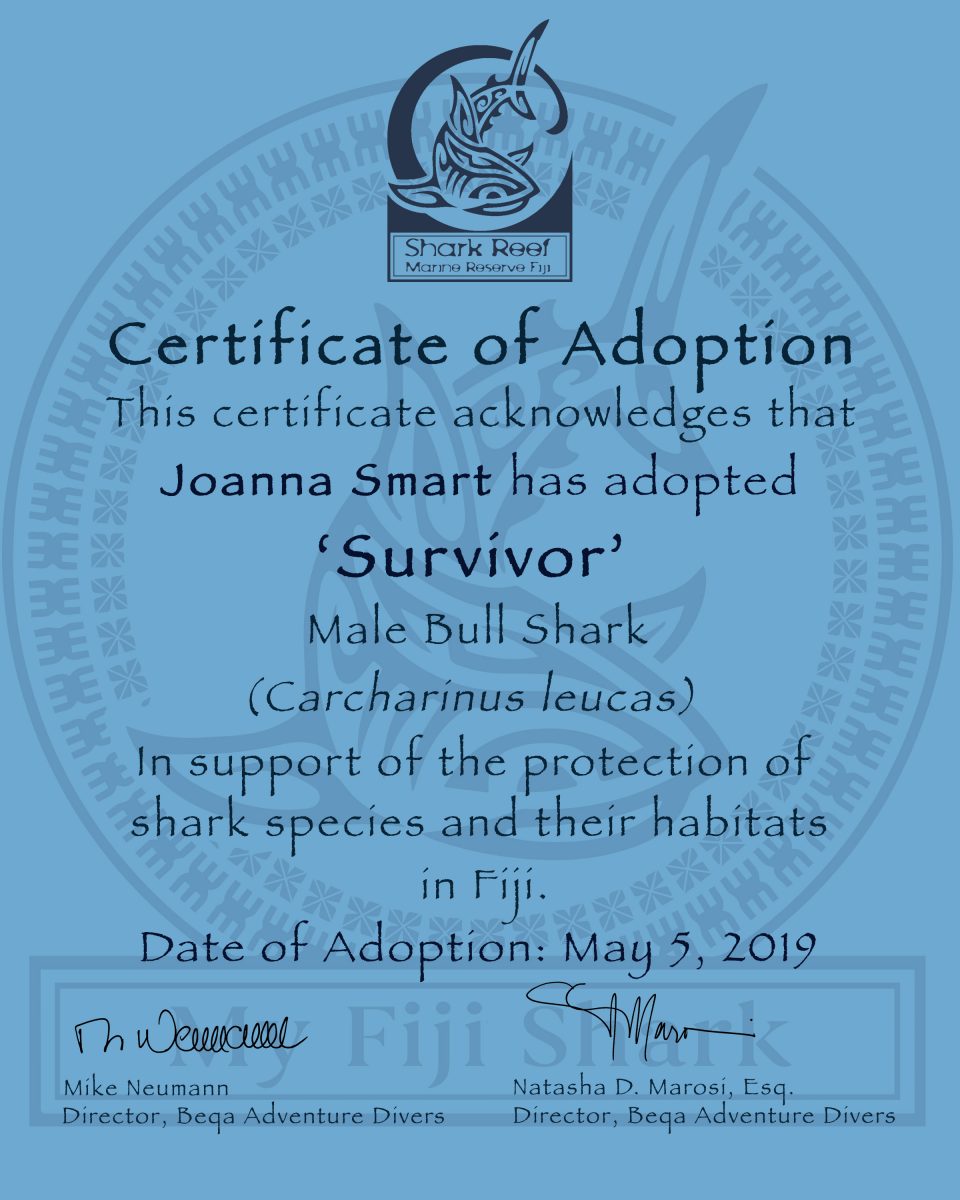
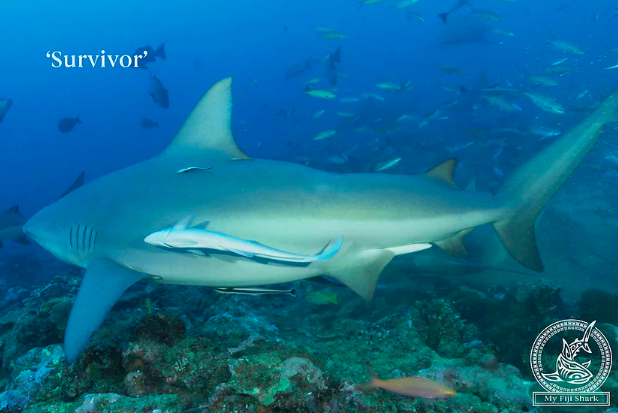
Please head to https://www.myfijishark.com/ to adopt your own shark and support the cause.
I had a fantastic time in Pacific Harbour with the BAD team. They really opened my eyes to the complexities of shark conservation. The passion and dedication of the whole team were inspiring and if your heading to Fiji, I cannot recommend this experience more.
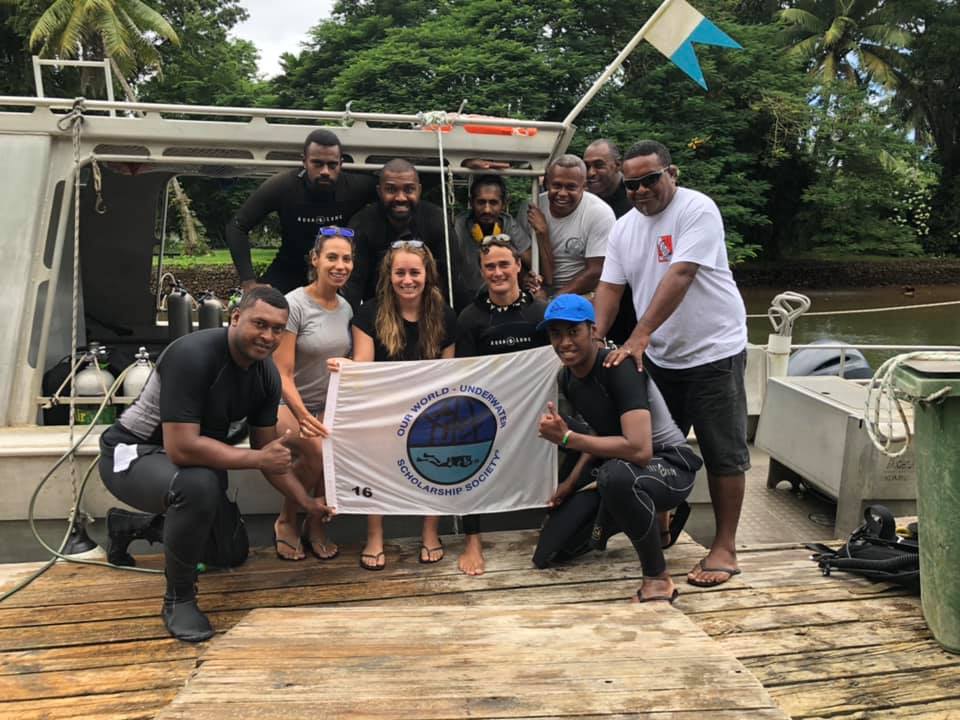
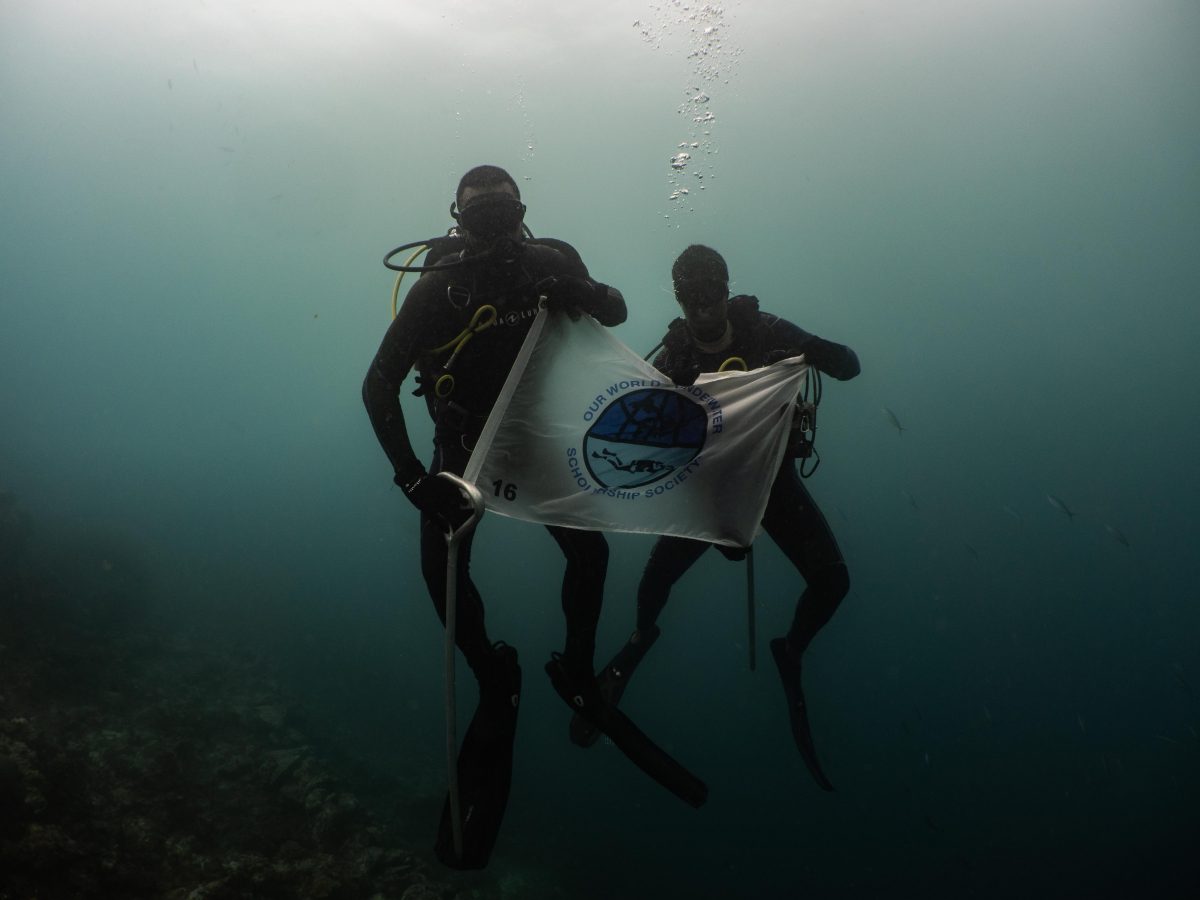
I would like to thank Natasha, Mike, Andrew and the whole BAD team for their hospitality during my stay.
All the photos on this post were taken with the amazing underwater camera set-up provided by Reef Photo and Video. It was my first time testing out this kit and I couldn’t be more impressed.
I would also like to thank Rolex and the Our World Underwater Scholarship Society for this amazing opportunity. This trip was the first of many adventures to come and I am excited to share this journey with everyone!
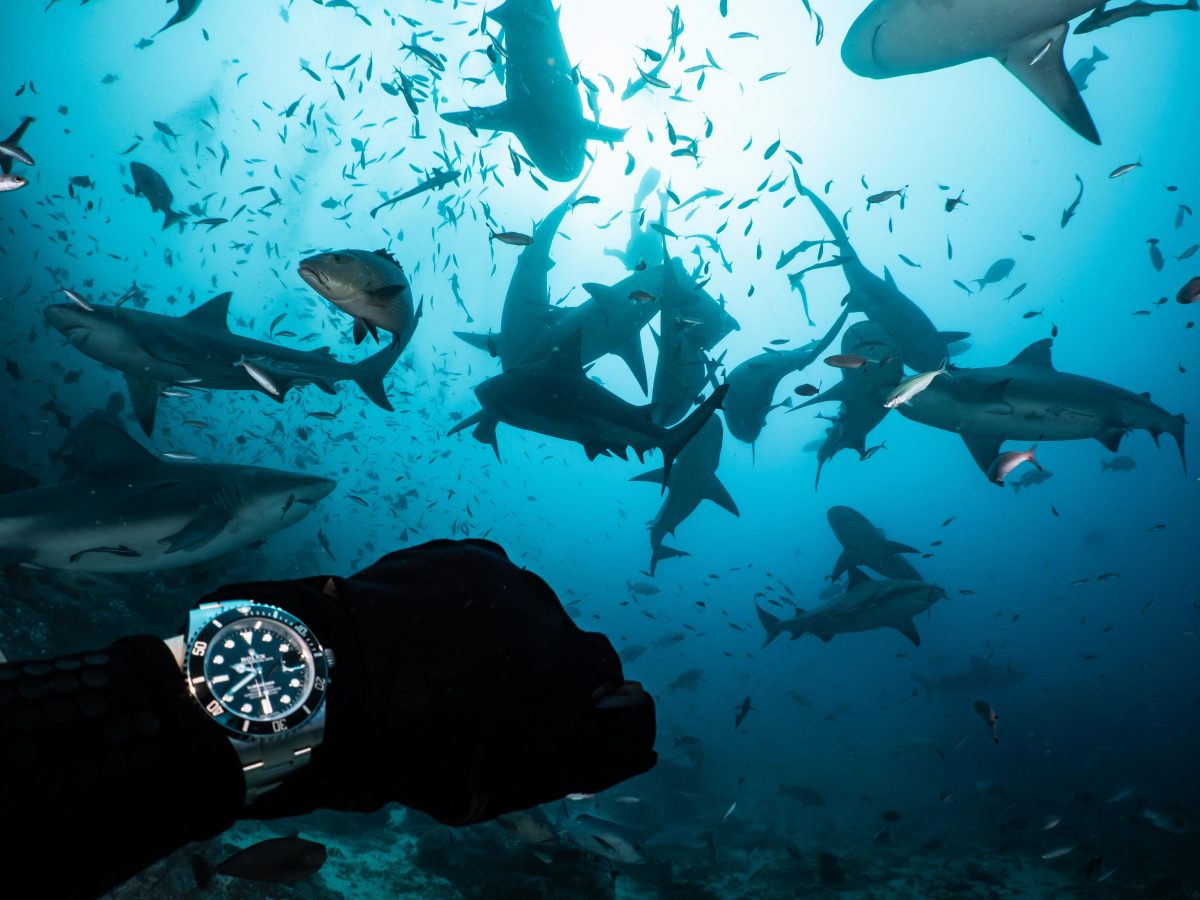
Fantastic Jo….and brilliant photos! ???? Great article and strong message.